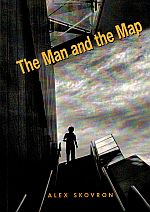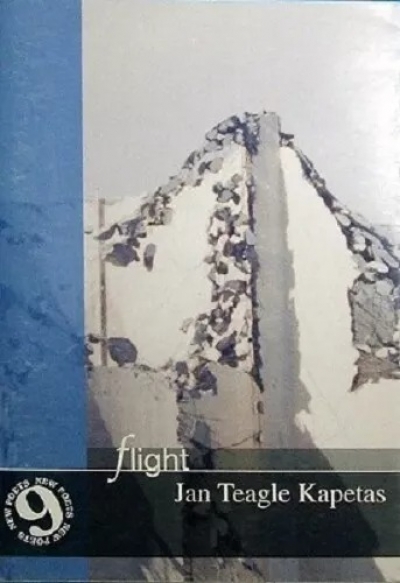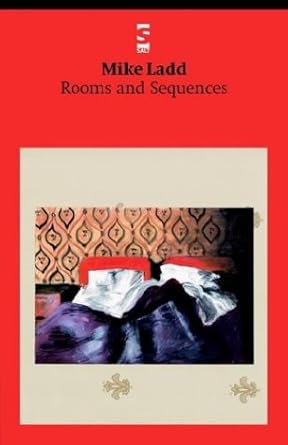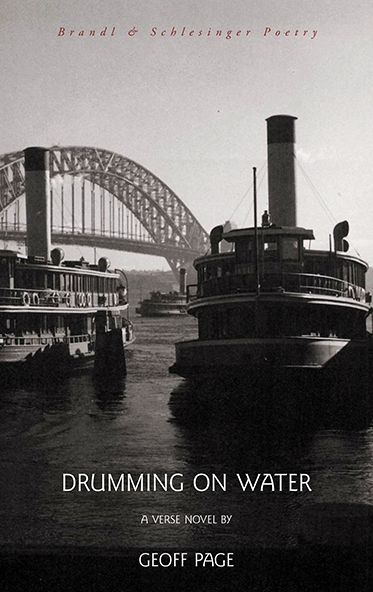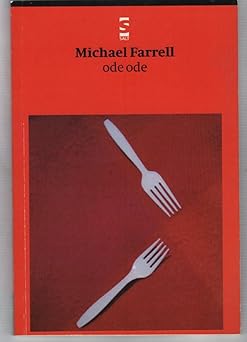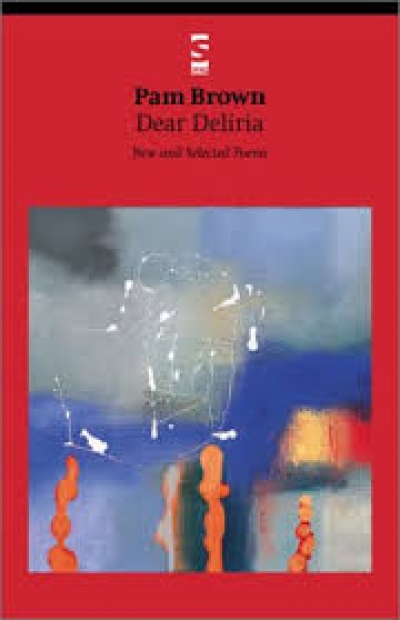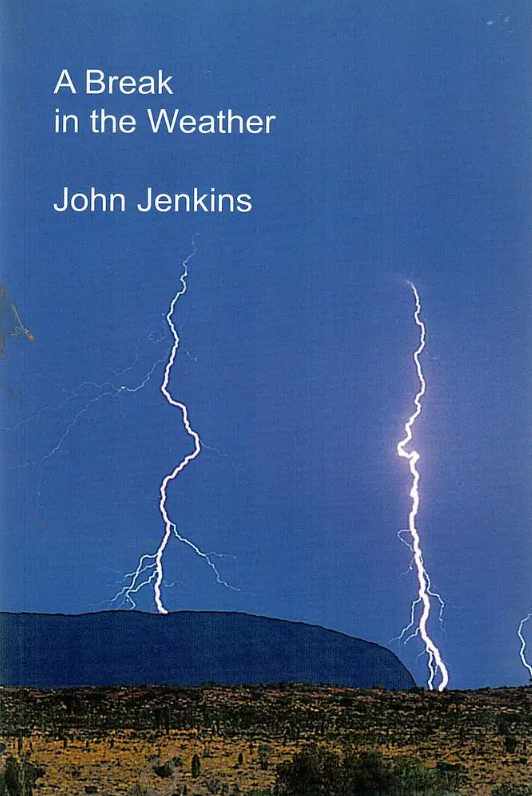Poetry
Alex Skovron has always been a clever poet, sometimes playfully so, more often seriously so. Skovron, who was born in Poland in 1948 and came to Australia, via Israel, in 1958, is steeped in the European intellectual tradition, though he wears his erudition lightly. Like almost everyone else, Skovron is troubled by the twentieth century: it seems to hang over the horizon of this book. He is also concerned about the nineteenth. As he says in ‘The Centuries’: ‘It is necessary to remind oneself / that the nineteenth century has never really left us: / it has been here all along, biding its time.’
... (read more)An invaluable testing ground, the pamphlet provides emerging poets with their first real opportunity to gauge critical response prior to the publication of first collections. For readers, it brings continuity to work that, in all likelihood, has appeared haphazardly in newspapers and magazines.
... (read more)Last year’s issue of Papertiger (a poetry journal on CD-ROM) contained a piece called ‘Transglobal Express’, a collaboration between Mike Ladd and outfit called Newaural Net. ‘Transglobal Express’ is an ‘audio poem’, the text of which is spoken by strangers on an Internet connection and set to a heavily percussive soundtrack. Clearly, Ladd has a fondness and flair for the unusual poetic enterprise. But I wonder, reading Rooms and Sequences, whether big ideas are too often pursued at the expense of careful composition.
... (read more)Like a series of attenuated conversation poems, Drumming on Water is a narrative in forty-five riffs. The individual poems are like extended song lyrics – spoken jazz: ‘ad lib, of course / but also well thought out.’ The words are notes to sound and repeat, scoring the brief and unmemorable career of a jazz drummer with the Lizzie Rivers’ All-Girl Band of 1938 and regular gigs on Sydney Harbour ferries, until the mysterious death of its lead singer who disappears overboard – the fulcrum of the poem.
It’s hard to overstate the sophistication of the poetry in this new verse novel (though verse narrative or novella would be more accurate). Drumming on Water sets a new benchmark in Australian poetry: smooth, elegant, vernacular and deceptively complex. It is an engaging read.
... (read more)Bowed from the supermarket, a week’s rations
jumbling the plastic, I saw in shadow
my dead father. He crept the pavement, burdened
as I am not by a lost country.
... (read more)It’s easy to see why Michael Farrell already has something of a reputation as a stylist, though this is his first collection. Inventive, sharp-witted, entertaining and meticulously made, the poems in ode ode offer a lower-case, unpunctuated take on style (‘i perforce have metamorphosed / more than once for a ball at short / notice’) in which style is energised, orchestrated substance.
The untitled, undated first section of the book, consisting of a series of poems called ‘codas’, begins with the explanation that ‘this is cinema made by people / shuffling in gumboots’. Cinema is wonderfully evoked here in poems that are themselves fast-moving, flickering montages, in which ‘time doesnt / just move forward not even the / past’. Scenes and characters, perhaps from films the poet is watching ‘in the mainstream in the arthouse’, slide into one another (‘the boys ugliness becomes / magnificent his screwy behaviour / erases alan bates from the mind’), or cut suddenly to others. Spliced-up scenery and partial sentences are rudely interrupted by utterance-fragments, lines get broken mid-word (‘julia ro / berts robot’), the sense and syntax take a turn for the unpredictable, and we start bumping into cinema’s roles ‘off / screen’ – as public outing (‘just stop me at the festival / a couple of fingers on my / wrist the word drink with a / rising tone’), private world (‘more red more / white i yell from my closeup’), social production (‘a collective / cry from all our hearts’), or confidence trick (‘per / haps his last laugh on holly / wood hmmm what do you think’). But ‘cinema’ is also a metaphor (‘reels / lives its all any of us have’) whose star if you like, or anti-hero, is the lower-case, dotted but unpunctuated first person: ‘this is a movie of the day i was / born the horses are actors all.’
... (read more)He meets a man with an icicle voice
who says it is ‘Mind’s disease’
to act impulsively; this man elevates
‘Reason’ to a pedestal, where he worships
at a cold, stony chiselled face, from afar
(& sometimes Peter sees him go up close, to peer,
at something old, cold, & slushy, underneath it –
which, he tells Peter, is a high I.Q.-ed
pickled brain, in a jar).
... (read more)It is a Pam Brown moment when, flicking through her Dear Deliria, I read of ‘historic butter sculptures’ and hear at the same time David Bowie on the stereo singing ‘yak-butter statues’. It’s a Pam Brown moment because her poetry is one of incidents and coincidence. In its interest in both the quotidian and in critique, Brown’s poetry illustrates the endless interplay between texts and contexts, between art and life. These latter categories are most vivid in Brown’s poems when they are collapsing into each other – like drunk friends at a party.
... (read more)At a time when publishers of poetry in Australia are light on the ground, the verse novel as a form appears to be, at least comparatively, a growth industry. The Australian poetry scene has been blessed on this front in recent years, with the sticky-as-sex efforts of Dorothy Porter (The Monkey’s Mask and Wild Surmise), the curious-noir of John Tranter (The Floor of Heaven) and the boots’n’all myth-building of Les Murray (Fredy Neptune). This penchant for a prosey poesy has by no means been limited to our shores, Vikram Seth and Anne Carsons being prime examples. Similarly, the most stunning verse novel of recent years, W.G. Sebald’s After Nature, is a testimony to the force and suppleness of the form.
... (read more)Who’s Who in Twentieth-Century World Poetry edited by Mark Willhardt and Alan Michael Parker
In his foreword to this reference work, Andrew Motion says that such books ‘exist to provoke argument’. In their preface, editors Willhardt and Parker suggest that ‘to compile such a volume as this may seem absurd; to do so successfully may be impossible’. Forewarned is forearmed, it would seem.
Despite all this, the book is useful – about the only adjective to which a reference work should reasonably aspire. Of course, it may also seek to construct an honour roll for posterity or update the canon. Or it might simply be part of a continuing battle for ‘cultural space’. In many ways, reference works like this are the counterpart of anthologies, which are also reviewed in terms of ‘who’s in and who’s out’.
... (read more)
